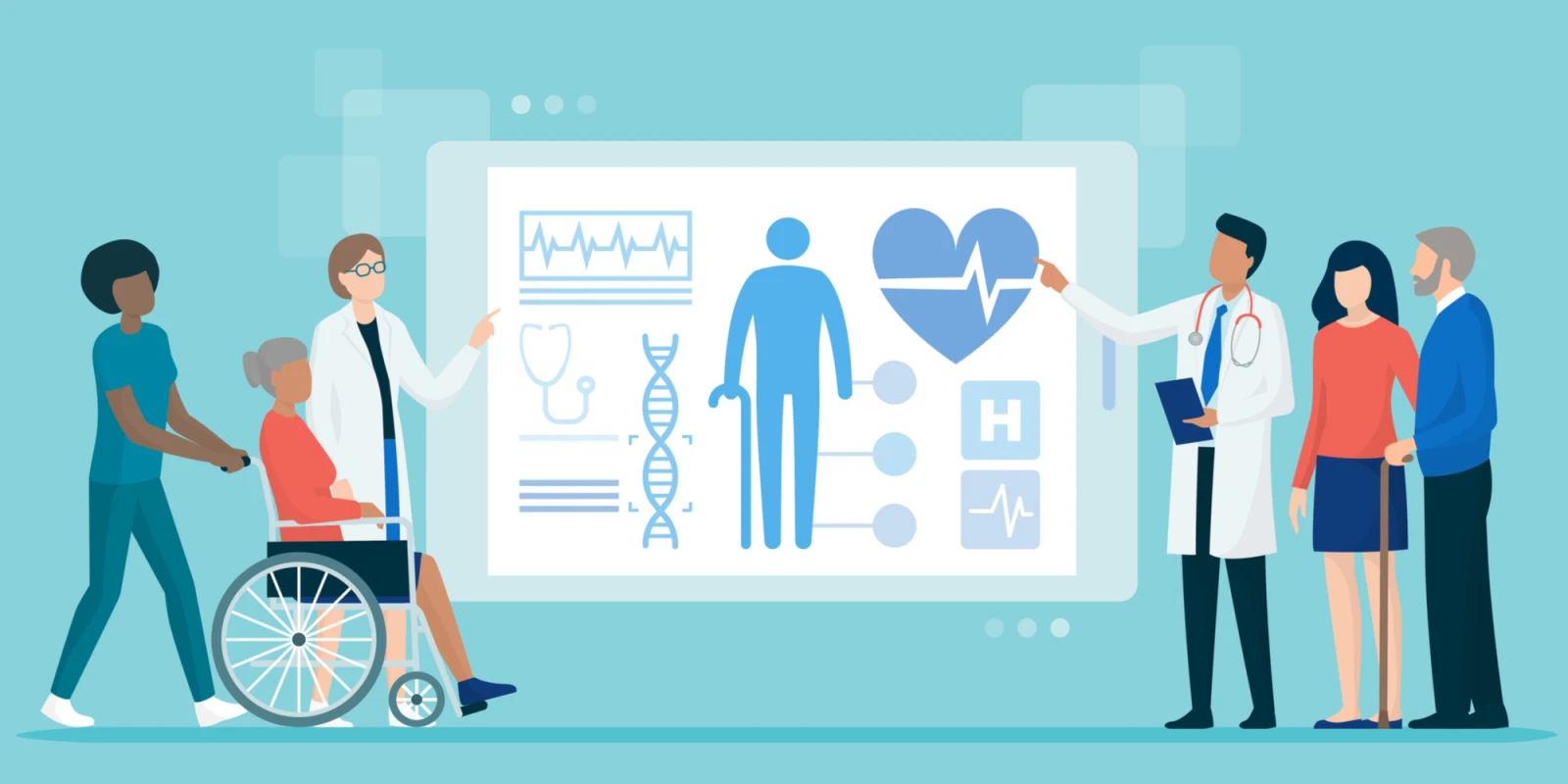
This was my first time attending the American Geriatrics Society (2019) Annual Meeting (AGS19), which was held in Portland. It’s a city full of energy, even more so with AGS19 attendees that gathered from all over the world to learn about updates in the care of older adults and advances in aging research.
The scientific sessions varied in their content and target audience, aiming to reach the diverse audience and membership of AGS. Here are some of the sessions and discussions that caught my attention.
Geroscience: From Bench to Bedside to Classroom
At the Geroscience special interest group (SIG), James Kirkland, MD from the Mayo Clinic Robert and Arlene Kogod Center on Aging discussed the exciting advances in geroscience-guided therapeutics. He specifically reviewed the development of senolytics and shared the impressive results in reducing cellular senescence burden and preventing development of a number of age-related chronic conditions in mice, such as age-related bone loss and cardiovascular disease. Some senolytics represent FDA-approved chemotherapeutic agents, repurposed for the use in targeting cellular senescence. Others are naturally occurring compounds, extracted and concentrated for similar use.
Despite the major benefits seen in murine models, “senolytics are not ready for prime time yet,” warned Kirkland. A number of human clinical trials are currently underway or expected to start soon. These trials will run in parallel, evaluating the benefits and risks associated with senolytic drugs on a number of chronic diseases separately. A geroscience network, funded by the National Institute on Aging (NIA), has been launched. It brings together leading US institutions in aging research in order to create a collaborative and unified effort to develop and run such clinical trials.
From an educational perspective, a discussion ensued led by George Kuchel, MD from the University of Connecticut Center on Aging that focused on incorporating geroscience into the curriculum of Geriatric Medicine fellowship programs nationwide and the leading role of AGS in that regards. The discussion highlighted the importance of coordinating efforts in building a curriculum that will align with the Accreditation Council for Graduate Medical Education (ACGME) core competencies while simultaneously educating the next generation of geriatricians and gerontologists about the advances in therapeutics and the science behind it.
Happy Anniversary to the NIA!
There was a significant presence of the NIA during the annual meeting, with its representatives sharing opportunities with investigators at all career levels. In fact, the NIA celebrated its 45th anniversary during AGS19! Although there was no birthday cake, attendees participated in a trivia game and had the opportunity to win prizes.
During the “ABCs of NIA Grantsmanship,” which was led by NIA Deputy Director Marie Bernard, MD and sponsored in cooperation with the AGS Research Committee, early-career investigators had the opportunity to meet with NIA representatives and discuss funding opportunities for both Alzheimer’s and non-Alzheimer’s related research. Round table sessions focused on career development and research awards, including the GEMSSTARs, the review process and responding to critique, as well as effective communication with program officers.
Leadership from the Junior Faculty Research Career Development SIG, including current chair Andrew Cohen, MD, DPhil from Yale School of Medicine, shared practical tips for successful grant preparation.
Mid- and senior-career investigators had a similar chance to rub shoulders with NIA leadership and discuss the priority areas of the Institute and its budget focus. The NIA Café gave the opportunity for researchers to meet in small groups with representatives from a number of NIA divisions, including the Division of Geriatrics and Clinical Gerontology, Division of Behavioral and Social Research, and the Office of Special Populations.
Young Investigators at the Core of AGS19
The Junior Faculty Research Career Development SIG sponsored three separate symposia this year:
- “Ensuring Research is Relevant,” which addressed the complexity of including older adults as research subjects, from protocol development to the use of geriatric-friendly recruitment processes and retention programs.
- “Scholarship on the Skinny,” which focused on surviving scarce resources including gaps in funding, lack of institutional or mentorship support, as well as exploring non-federal funding opportunities.
- “Incorporating Caregivers,” which underlined emerging trends and developments in inclusion of caregivers in aging research, geriatric clinical practice, and policy-making.
Finally, a leadership curriculum, which included three symposia in addition to a number of special focus groups, stood out in the AGS19 program. Although many physicians and providers are leaders in their communities, leadership skills are not always intuitive. Geriatricians and gerontologists, in particular, assume leading positions of multi-disciplinary groups and committees, which makes a leadership curriculum all the more important.
AGS19 turned out to be a true “translational” meeting, bringing the bench to the bedside with a well-balanced program that has something for everyone. See you next spring in Long Beach, CA for AGS20!
Jad G. Sfeir, MD is an assistant professor of medicine at the Mayo Clinic College of Medicine. He completed training in Endocrinology and Geriatrics at the Mayo Clinic in Rochester, MN. He is currently performing research at the Robert and Arlene Kogod Center on Aging, focusing on targeting cellular senescence to prevent age-related bone loss. He reports no conflicts of interest with this opinion piece. He can be reached on Twitter @sfeirjad.







